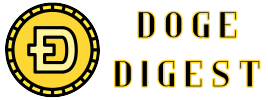In the ever-evolving world of cryptocurrency, Dogecoin has carved out a unique and enthusiastic niche. What started as a playful meme has transformed into a digital asset embraced by communities worldwide. But with the rise in popularity comes the crucial question: where should you safely store your Dogecoin? Enter desktop wallets-powerful tools that combine convenience with security, giving users full control over their coins right from their own computers. In this guide, we’ll explore the best desktop wallets designed to keep your Dogecoin secure, accessible, and ready for the next big moment in the crypto spotlight.
Understanding Desktop Wallets and Their Importance for Dogecoin Owners
Desktop wallets are a cornerstone for anyone serious about managing their Dogecoin securely. Unlike online wallets, they store your private keys directly on your personal computer, giving you full control over your funds without relying on third-party servers. This control is crucial, as it significantly reduces the risk of hacks or unauthorized access often associated with web-based wallets. For Dogecoin owners, a desktop wallet acts like a personal vault-accessible anytime but locked tight from external threats.
One of the key advantages of using a desktop wallet lies in its balance between convenience and security. They typically offer an intuitive interface, allowing users to send, receive, and track their Dogecoin effortlessly. Combined with features like encrypted backups and multi-layer authentication, these wallets ensure that your assets aren’t just stored-they’re safeguarded. This makes desktop wallets ideal for both beginners wanting to safely dip their toes into crypto and seasoned holders planning to keep their stash over time.
To illustrate, consider the following comparison of popular Dogecoin desktop wallets highlighting their core attributes:
| Wallet | Security Features | User Friendliness | Platform Support |
|---|---|---|---|
| MultiDoge | Local key storage, Encrypted backups | Simple interface, Beginner-friendly | Windows, Mac, Linux |
| Exodus | Hardware wallet integration, Password protection | Highly intuitive, Built-in exchange | Windows, Mac, Linux |
| Atomic Wallet | Encrypted private keys, Multi-currency support | Customizable, 24/7 support | Windows, Mac, Linux |
Key Security Features to Look for in a Dogecoin Desktop Wallet
When choosing a desktop wallet for storing Dogecoin, prioritizing strong security measures is non-negotiable. At the heart of a trustworthy wallet lies private key encryption, ensuring your keys are never exposed or stored in plain text. Look for wallets offering automatic backups or encrypted seed phrases, which act as a last-resort safety net should anything happen to your device.
Multi-factor authentication (MFA) is another critical layer that significantly reduces the risk of unauthorized access. Whether it’s through time-based one-time passwords (TOTP) or hardware token compatibility, wallets that support MFA provide peace of mind by demanding more than just a password to unlock your funds. Additionally, secure communication protocols, like SSL/TLS encryption, safeguard data transmission between your wallet and Dogecoin’s network.
To simplify your evaluation, here’s a quick glimpse at essential security features every Dogecoin desktop wallet should offer:
| Security Feature | What It Means |
|---|---|
| Private Key Encryption | Protects keys from theft by encrypting them locally |
| Backup & Recovery Options | Enables secure restoration of wallet and funds |
| Multi-factor Authentication | Adds extra login security layers beyond passwords |
| Offline Transaction Signing | Keeps private keys isolated during transaction approval |
| Open-source Codebase | Allows transparency and community audits for vulnerabilities |
Comparing Popular Desktop Wallets for Dogecoin Storage
When it comes to safeguarding your Dogecoin, choosing the right desktop wallet is crucial. Wallets like Exodus and Atomic Wallet are popular for their intuitive interfaces and multi-currency support. Exodus distinguishes itself with its sleek, user-friendly design and actively updated security features, making it a great pick for beginners and seasoned holders alike. Meanwhile, Atomic Wallet offers a decentralized exchange built right into the application, adding convenience for those who want to swap assets without leaving their wallet environment.
On the other side of the coin, wallets such as Trust Wallet Desktop and Dogecoin Core cater to users who prioritize control and security. Dogecoin Core, being the official wallet, stores the entire blockchain on your hard drive, offering enhanced privacy and offline transaction signing-a definite boon for those who prefer a full-node experience. However, this means you’ll need ample storage space and patience during setup. Trust Wallet Desktop, though newer in the desktop realm, extends its renowned mobile simplicity to PC, backed by solid encryption and backup features.
To give a clearer picture, here’s a quick snapshot comparing core attributes of these wallets:
| Wallet | User-Friendliness | Security Level | Extras |
|---|---|---|---|
| Exodus | ⭐⭐⭐⭐☆ | High | Built-in Exchange, Portfolio Tracker |
| Atomic Wallet | ⭐⭐⭐⭐☆ | High | Decentralized Exchange, Multi-Asset Support |
| Dogecoin Core | ⭐⭐⭐☆☆ | Very High | Full Node, Offline Transactions |
| Trust Wallet Desktop | ⭐⭐⭐⭐☆ | High | Strong Encryption, Backup & Restore |
- Exodus: Best for ease of use and visual appeal
- Atomic Wallet: Ideal for atomic swaps and multi-currency holders
- Dogecoin Core: Perfect for privacy enthusiasts wanting full control
- Trust Wallet Desktop: A solid choice for users familiar with Trust’s mobile platform
Step-by-Step Guide to Setting Up Your Dogecoin Desktop Wallet
Begin your journey by selecting a reputable Dogecoin desktop wallet from trustworthy sources, such as the official Dogecoin website or well-known wallet providers. Once downloaded, open the installer and follow the setup wizard carefully. During this phase, pay close attention to the security recommendations-especially the creation of a strong, unique password that protects your wallet from unauthorized access. Always keep this password confidential, as it will be the guardian of your funds.
After installation, initializing your wallet is crucial. This process involves generating a new wallet file that contains your unique Dogecoin keys. Here’s a handy checklist to get started:
- Backup your wallet file to multiple secure locations
- Enable wallet encryption for an added security layer
- Synchronize the wallet with the Dogecoin blockchain (this may take some time)
- Consider setting up two-factor authentication if supported
Once synced, take a moment to familiarize yourself with the wallet interface-locating your public address and understanding the send/receive functions. If you’re transferring Dogecoin from an exchange or another wallet, test with a small amount first to ensure smooth transactions. Below is a simple comparison table highlighting key features of popular Dogecoin desktop wallets, guiding you to make an informed choice:
| Wallet Name | Platform | Security Features | Sync Speed |
|---|---|---|---|
| Dogecoin Core | Windows, macOS, Linux | Full encryption, Backup support | Slow (full node) |
| MultiDoge | Windows, macOS | Light encryption | Fast (light node) |
| Atomic Wallet | Windows, macOS, Linux | Encrypted storage, 2FA | Medium |
Tips for Maintaining Maximum Security with Your Dogecoin Wallet
Stay Vigilant with Your Private Keys. These cryptographic keys are the golden ticket to your Dogecoin fortune. Keep them offline and never share them digitally. Using hardware wallets or encrypted USB drives for backups can dramatically reduce the risk of theft. Remember, if someone gains access to your private key, they control your Dogecoin – no second chances.
Enable Two-Factor Authentication (2FA) Everywhere Possible. Even if your desktop wallet supports 2FA, expand that security layer to your email and exchange accounts. Apps like Google Authenticator or Authy provide a rotating code that adds an extra barrier against hackers. This simple step can stop unauthorized access even if your password falls into the wrong hands.
Keep Software Updated and Beware of Phishing Scams. Wallet developers regularly release updates to patch vulnerabilities and improve security. Make it a habit to download updates only from official sources. Also, examine URLs carefully before entering sensitive information-phishing sites often mimic legit wallets and exchanges but are designed to steal your credentials. When in doubt, double-check and confirm conversations or emails with trusted contacts.
| Security Practice | Why It Matters | Quick Tip |
|---|---|---|
| Offline Private Key Storage | Prevents digital theft | Use cold wallets or paper backups |
| Two-Factor Authentication | Blocks unauthorized login attempts | Enable on wallet and email accounts |
| Regular Software Updates | Fixes vulnerabilities | Download from official websites only |
| Phishing Awareness | Keeps login credentials safe | Double-check URLs and sender info |
Q&A
Q&A: Dogecoin Digs – The Best Desktop Wallets for Safe Storage
Q1: What makes desktop wallets a good choice for storing Dogecoin?
A1: Desktop wallets strike a balance between security and convenience. They store your Dogecoin private keys directly on your computer, keeping control in your hands without relying on third-party services. Unlike online wallets, they reduce exposure to hacking risks associated with internet-based storage, offering a safer environment-especially when paired with good cybersecurity practices.
Q2: Are desktop wallets suitable for beginners in the Dogecoin community?
A2: Absolutely! Many desktop wallets feature user-friendly interfaces designed with newcomers in mind. They often include straightforward setup guides, intuitive transaction workflows, and helpful backup options. With a bit of guidance, beginners can confidently manage their Dogecoin holdings while gaining a deeper understanding of cryptocurrency basics.
Q3: Which desktop wallets are considered the best for Dogecoin storage?
A3: Some of the top desktop wallets praised for Dogecoin include:
- MultiDoge: A lightweight wallet tailored specifically for Dogecoin, ideal for quick setup and easy use.
- Dogecoin Core: The official full-node wallet, highly secure but requires significant storage and sync time.
- Exodus: A beautifully designed multi-currency wallet supporting Dogecoin, perfect for users managing multiple assets.
- Atomic Wallet: Offers decentralized storage with built-in exchange features, supporting Dogecoin with strong encryption.
Q4: How important is it to backup my desktop Dogecoin wallet?
A4: Backups are critical! A desktop wallet stores your private keys locally, so if your computer crashes or is stolen without a backup, your Dogecoin could be lost forever. Regularly backing up your wallet file or seed phrase and storing it securely-in multiple safe places-is key to safeguarding your crypto treasure.
Q5: Can desktop wallets be vulnerable to malware or hacks?
A5: Yes, no system is completely impervious. Since private keys reside on your computer, malware or keyloggers can pose threats. To mitigate risks, keep your system updated, use reputable antivirus software, avoid suspicious downloads, and consider using hardware wallets for large Dogecoin holdings if security is paramount.
Q6: How do desktop wallets differ from hardware or mobile wallets for Dogecoin?
A6: Desktop wallets are software installed on your computer, offering a middle ground between online accessibility and cold storage security. Hardware wallets store keys offline on physical devices, providing superior security at the cost of convenience. Mobile wallets prioritize accessibility on the go but can be more vulnerable if the phone is lost or compromised.
Q7: Is syncing time a concern with desktop wallets like Dogecoin Core?
A7: It can be. Full-node wallets like Dogecoin Core download the entire blockchain, which ensures maximal security and validation but requires significant time and storage space. Lightweight wallets like MultiDoge or Exodus use simplified processes to speed up syncing, making them better suited for users prioritizing ease of use.
Q8: What features should one look for in a Dogecoin desktop wallet?
A8: Key features include:
- Security: Strong encryption and backup options.
- User Interface: Clear, intuitive design.
- Compatibility: Works on your operating system (Windows, macOS, Linux).
- Support: Active development and community.
- Additional Features: Built-in exchanges, multi-currency support, and transaction history.
Q9: Can I use multiple desktop wallets for my Dogecoin?
A9: Yes, diversifying wallets can enhance security. Using one wallet for everyday transactions and another for long-term cold storage is a savvy approach. Just be mindful of managing multiple backup seeds and keeping your private keys confidential.
Q10: What final advice would you give to someone choosing a desktop wallet for Dogecoin?
A10: Research and test! Try wallets that fit your comfort level and needs. Prioritize security and backups above all. Remember, your Dogecoin is only as safe as the practices you adopt. Choose wisely, stay informed, and enjoy the fun and community spirit that Dogecoin brings to the crypto world.
In Summary
As Dogecoin continues to carve its niche in the digital currency landscape, choosing the right desktop wallet becomes more than just a convenience-it’s a cornerstone of secure and accessible storage. Whether you prioritize user-friendly interfaces, robust security, or seamless transaction management, the wallets highlighted here offer reliable options to safeguard your Dogecoin treasure trove. In the ever-evolving world of crypto, a trusted desktop wallet isn’t just a tool-it’s your gateway to confidently navigating the Dogecoin digs. Happy storing!






